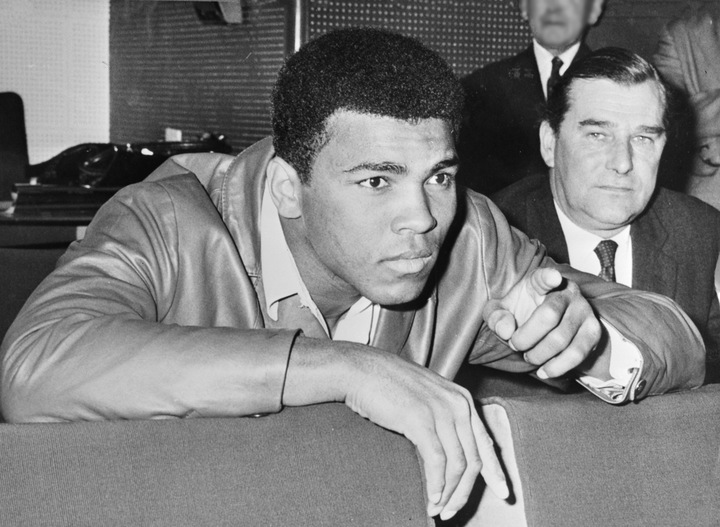When something truly stunning, genuinely shocking occurs, it is all but impossible for many people to accept what they have seen, with their own eyes, at face value (see the Kennedy Assassination and all the wild and crazy theories many millions of people still cling to in an attempt to rationalize that sad day in Dallas). To a lesser extent, this is what happened, or later happened, with Muhammad Ali’s incredible, odds-defying KO victory over the “invincible” George Foreman.
Going into the fight, an ageing Ali was given little chance of winning by most; to the extent that many openly worried for the 32 year old’s health. Foreman, a genuine wrecking machine, was 25, at his peak and he had utterly annihilated the only two men to have beaten Ali: Joe Frazier and Kenny Norton. Also, in training ahead of the big fight in the unlikely setting of the African Jungle, the young champion had shown proficient ability at cutting the ring off on his sparring partners. With Ali’s only chance of victory being to dance and to stick and move and maybe pick up a points win, Foreman’s ability to cut off an opponent and make his escape route a tough thing to locate greatly worried Ali supporters.
Instead of dancing, Ali of course did the impossible and, laying on the ropes, let Foreman punch himself out and then unleashed his own punches in a dazzling combination that felled the giant. It was that simple, even though doing what he did that early morning in Zaire took great nerve from Ali (who else could have beaten the 1974 version of Foreman in such a way?). But that early morning, no-one was doubting what they had seen, or the validity of Ali’s superb win. That came later.
Started by the beaten (and beaten up) ex-champion, tales of “loose ropes,” a “short count,” and of Foreman having “been drugged” emerged. To this day, these myths, and a few more, persist.
Let’s try and clear it up.
Ali did the “impossible,” therefore it became surprisingly easy to swallow the outlandish theories “explaining” the fight and Ali’s thoroughly unexpected win.
Angelo Dundee did NOT loosen the ropes.
This one has endured and endured, frustratingly so. Dundee had no knowledge of his fighter’s plan to lay on the ropes and soak up Foreman’s lethal blows. Heck, even Ali himself did not go into the ring knowing he would do this. Why then, would Dundee loosen the ropes? He didn’t. During the fight, with Ali on the ropes, Angelo, “feeling sick” at the sight of his fighter laying against the ropes, so high up from the floor (“I was scared to death my guy would fall out of the ring,” Dundee later said) was screaming at him to get OFF the ropes.
Dundee didn’t loosen the ropes, to the contrary, he tried to tighten them.
There was no “short count.” Referee Zack Clayton, who did a great job in the fight, hit “ten” just as Foreman rose. Totally beaten, Foreman had nothing left anyway.
As for his being drugged, we have only Foreman’s tale of “tasting something like medicine” in the water his trainer Dick Saddler gave him in the dressing room minutes before the fight began. But what could have drugged Foreman to the extent that he was okay for three or four-rounds and only then began to look tired, flail with his punches and generally appear out of ideas, dizzy and exhausted? It couldn’t have been anything to do with the heat, Foreman’s limited (at the time) stamina and Ali’s own sharp punches coming back at him as George walked in, could it?
Of course we can never prove Foreman wasn’t drugged, but it seems incredibly doubtful.
Ali won and he won with his skills, guts and brains. To say otherwise is to take away from a superb fighter’s finest victory. Conspiracy theories (rarely proven to be true) are bad for your health.
